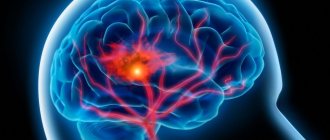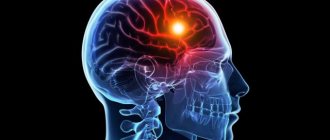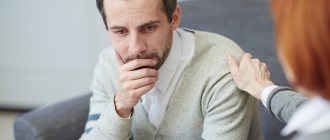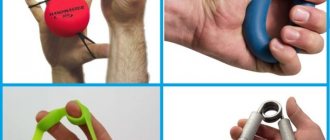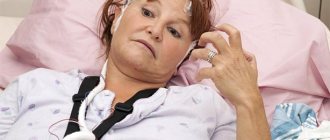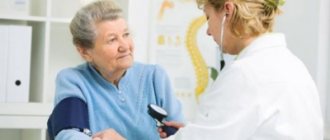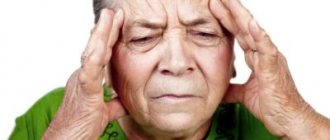Causes of increased sleepiness after a stroke
Before turning to the factors that cause severe sleepiness after a cerebrovascular accident, it is important to note that patients can equally suffer from any sleep disorder.
According to the observations of neurologists, insomnia occurs after stroke in 35-45% of cases.
More often there is severe weakness, daytime drowsiness, and sound sleep at night. The causes of pathological hypersomnia can be various conditions.
- Impaired brain function after a stroke, associated with damage to certain areas of nervous tissue. Prolonged artery spasm deprives nerve cells of nutrition and oxygen. Hypoxia leads to the death of some neurons, swelling of the intercellular space, disruption of blood flow and impulse transmission. A lot of effort is spent on restoring existing neurological and cerebral symptoms, so the only way to replenish energy is healthy sleep. This process is a kind of compensatory reaction of the body to damage.
- Increased sleepiness during the day is the result of sleepless nights. The resulting disturbances in the functioning of the nervous system (paresis, paralysis of the limbs, pain, dizziness, swallowing disorders, incontinence of physiological functions) interfere with a good rest at night. In the morning, patients feel overwhelmed, exhausted, and tired. The only way to regain strength is to fall asleep during the day.
People who have had a stroke often wake up at night, so they sleep a lot during the day
- Depression. As psychotherapists note, after suffering a stroke, patients often complain of tearfulness, increased irritability, mood swings, and depression. Restricted mobility and a sharp deterioration in the quality of life directly affect the human psyche. First of all, sleep is disturbed: sleepless nights alternate with periods of severe drowsiness, fatigue, and apathy. Prescribed antidepressants can significantly improve the patient’s condition and regulate circadian rhythms.
- Elderly patients suffer from increased sleepiness much more than younger people. This is due to a whole bunch of existing chronic diseases, deviations in health, and a decrease in the ability to quickly and fully restore body functions. This is why people over 65 tend to sleep often and for a long time after a stroke.
To improve the quality of night sleep and eliminate daytime sleepiness, you need to follow several general recommendations.
Sleep during the post-stroke recovery period
A stroke affects different parts of the brain, cutting off access to blood, and therefore oxygen and nutrients. As a result, the cells in the affected area die. The so-called shadow area after a stroke is highlighted separately, the cells in which were not completely deprived of nutrition and oxygen, were partially damaged, but were able to “survive”. After an attack, they are attacked by dead cells in the affected area and, because of this, the risk of their rapid death increases.
The main role of sleep in the human body is restoration. During wakefulness, the body, roughly speaking, “wears out” cells. When he sleeps, everything happens the other way around, all systems of the human body slow down, and each cell restores its function. An increased amount of sleep means one thing - the body is trying to recover as much as possible after such a “blow”.
The optimal time for recovery after an impact should be 8-10 hours
If the sleep is deep, occurs at night, lasts a long time, and after several months of rehabilitation it returns to relative normality - that is, the patient sleeps a sufficient number of hours - 8-10, and not 12-15, this is considered the norm. This means that the person is actively recovering, and there is a high chance of rapid improvement.
It is worth noting: if a patient after a stroke sleeps all the time, the sleep is of high quality and deep, there is no need to worry. If he sleeps during the day and is awake at night, this schedule can be slightly adjusted with the help of a doctor.
How does sleep become normal?
To normalize sleep, doctors advise:
- Ventilate the room more often to keep the temperature low, or use air conditioning.
- It won’t hurt to reduce the amount of calories you consume and reduce the temperature of the food you eat.
- Extend wakefulness during the day. The patient will be able to be occupied with rehabilitation games aimed at improving memory and pronunciation.
To treat asthenic syndrome, patients after a stroke are prescribed: vitamins, drugs that stimulate metabolic processes in neurons, and psychostimulants.
It is necessary to ensure natural sleep duration at night. To do this, follow these instructions:
- The room in which the patient is located should be as well ventilated and darkened as possible.
- Position patients in bed on the healthy side or on their back.
- To restore normal biorhythms, the specialist prescribes melatonin.
- Natural sleeping pills and prescription drugs are used.
- Before going to bed, you can drink warm milk and honey.
During the daytime, certain efforts must be made to activate the patient’s condition:
- Exercise therapy or massage.
- Procedures that restore memory and speech function.
- Washing in cool water, personal hygiene.
- You need to listen to music.
- Eating more frequently in fractional portions, foods should not be too hot.
- Breathing exercises.
One of the characteristic manifestations of a stroke is the appearance of depression. This is a natural result of the patient’s loss of ability to work. A person cannot take care of himself on his own, depends on outside help, and his life plans are disrupted. You have to give up your hobbies and interesting activities. People fear for their own lives and for the possibility of recovery .
Features of recovery processes
A stroke affects various parts of the brain, thereby cutting off the supply of oxygen and nutrients.
As a result, the cells of the lesion die. Therefore, recovery is the most important period, in which sleep plays a major role. During wakefulness, brain cells actively work, but during sleep, on the contrary, they are restored. If a person sleeps a lot after a stroke, this means one thing: the body is trying its best to return to normal. A couple of months after a stroke, nightly sleep should be 8-10 hours.
An important question: why does a person sleep a lot after a stroke?
A stroke is a disorder of the blood supply to the brain. As a result, the human brain is either catastrophically starved from the interruption of blood flow, or, conversely, is overloaded from hemorrhage.
Of course, after such a severe blow, the human body takes a long time to recover, and in some cases does not recover at all: only 20% of stroke survivors do not receive some degree of disability. In particular, most survivors of the impact have disrupted sleep patterns.
Sleep disorders during rehabilitation
Often the post-stroke condition is accompanied by insomnia or increased sleepiness. Let's look at why this happens.
Insomnia at night
The main causes of pathological drowsiness are:
- Cerebrovascular accident. This leads to increased blood pressure, especially in the evening, making it difficult for the patient to sleep.
- Mental disorders. The post-stroke condition can cause the following problems:
- inadequate perception of the surrounding world;
causeless anxiety;
- irritability;
- apathy;
- suspicion.
- Age. After a stroke, the body is significantly worn out. A person can get enough sleep during the day, but suffer from insomnia at night.
- Breathing problems. After a stroke, a person may experience severe snoring. It is this that prevents the patient from getting a full night's sleep, especially if there was no sleep before the attack.
- Impaired functioning of the musculoskeletal system. Most often it is restless leg syndrome, which makes it difficult to sleep at night.
- External stimuli. During the recovery period, a person becomes too sensitive, so factors such as noise, high humidity, air temperature, bright light interfere with proper rest.
Mood can change several times a day. Such emotional swings cause insomnia.
Why does the patient sleep all the time?
The patient sleeps a lot, experts identify the following factors why this happens:
- Poorly restored blood circulation. The brain must renew blood in a timely manner. If this does not happen, then it sends certain signals to the entire body. As a result of this process, the production of serotonin, the hormone responsible for a calm state, slows down. This significantly worsens sleep - a person begins to wake up from any rustle.
- Depression. The condition, which arises for physiological reasons, leads to the active production of serotonin. The patient becomes apathetic and prone to anxiety. This leads him to dark thoughts that do not allow him to sleep peacefully.
- Age. A stroke suffered by an elderly person greatly weakens the body. The patient needs much more time to rest. He starts sleeping 12-15 hours a day.
Results of the influence of complex procedures to normalize sleep
A person suffering from lack of sleep becomes suspicious and irritable. In order not to create (or develop) a conflict situation on this basis, it is necessary to explain to the patient the features of age-related changes in sleep patterns. This will eliminate their attribution to the consequences of a stroke and will help the patient determine for himself the real reasons for the disruption of rest; he will independently strive to normalize sleep.
In addition, in patients after a stroke, against the background of loss of motor activity and awareness of the consequences of the pathology, the following are often observed:
- mood changes;
- apathy;
- irritation;
- tearfulness.
Achieving concrete successes in the rehabilitation program will help patients overcome these psychological negative consequences. By focusing the faith and desire of the patient, you can switch his attention from adversity to the successes achieved, instill in the patient the confidence of actually achieving positive treatment results, and reducing the negative consequences of a stroke.
Often, after the first short-term success, the patient experiences a second wave of depression; in this case, it is important that those around him support the patient and set a stable psychological background for reflection and a positive assessment of reality.
How to normalize rest and its duration?
To help the body recover faster, treatment is required.
Let's consider treatment methods for insomnia and drowsiness in the post-stroke period.
What to do if the patient is awake for a long time?
For insomnia, drug therapy is carried out , lifestyle and daily routine are adjusted, and alternative medicine is used.
Drug treatment
To normalize the functioning of the nervous system, the doctor prescribes the following medications:
- sleeping pills – Zopiclone, Phenazepam, Zolpidem;
- antidepressants – Mirtazapine, Trazodone, Doxepin.
Dosages should be strictly adhered to. These are potent drugs that can cause a number of side effects.
Folk remedies
In addition to drug therapy, traditional medicine recipes are also used:
- Valerian root. You will need 2 teaspoons of crushed root, add 1 cup of boiling water, leave to steep for 1.5 hours.
- Take 2 tablespoons 3 times a day.
- Pour 3 tablespoons of dried motherwort into 0.5 liters of boiling water.
- You should take 50 grams of crushed valerian root and 25 grams of lemon balm leaves.
Daily routine and lifestyle
People suffering from insomnia after a stroke need to make changes to their usual lifestyle:
- avoid unpleasant conversations, thoughts, negative emotions;
- spend more time outdoors in uncrowded, quiet places;
- if the limbs are paralyzed, regularly perform therapeutic exercises;
- Healthy food;
- in the daytime, constantly be in the light - this promotes the production of melanin, which makes the body stay awake;
- completely give up smoking, alcoholic and caffeinated drinks.
What to do if falling into a sleep state occurs constantly?
If a person sleeps all the time after a stroke, drug therapy is prescribed depending on the location of the lesion and the severity of the condition.
Medicines from the following groups are usually prescribed: anticoagulants, vascular drugs and sedatives.
As for other treatment methods, in addition the following are recommended:
- physiotherapeutic procedures;
- physiotherapy;
- massage course
In addition, it is necessary to normalize the daily routine: there should be a fixed time for getting up, a short lunch break, and going to bed. Nutrition also plays an important role - you need to minimize, or better yet eliminate, carbohydrates, fatty and too hot foods.
Sleep disturbances are not the only possible consequence of a stroke; they also include swelling and cramps, loss of the ability to speak, paralysis, pain, numbness and burning in the arms and legs, and coma. The consequences are different for women, men and the elderly.
Causes of increased sleepiness after a stroke
Before turning to the factors that cause severe sleepiness after a cerebrovascular accident, it is important to note that patients can equally suffer from any sleep disorder.
According to the observations of neurologists, insomnia occurs after stroke in 35-45% of cases.
More often there is severe weakness, daytime drowsiness, and sound sleep at night. The causes of pathological hypersomnia can be various conditions.
- Impaired brain function after a stroke, associated with damage to certain areas of nervous tissue. Prolonged artery spasm deprives nerve cells of nutrition and oxygen. Hypoxia leads to the death of some neurons, swelling of the intercellular space, disruption of blood flow and impulse transmission. A lot of effort is spent on restoring existing neurological and cerebral symptoms, so the only way to replenish energy is healthy sleep. This process is a kind of compensatory reaction of the body to damage.
- Increased sleepiness during the day is the result of sleepless nights. The resulting disturbances in the functioning of the nervous system (paresis, paralysis of the limbs, pain, dizziness, swallowing disorders, incontinence of physiological functions) interfere with a good rest at night. In the morning, patients feel overwhelmed, exhausted, and tired. The only way to regain strength is to fall asleep during the day.
People who have had a stroke often wake up at night, so they sleep a lot during the day
- Depression. As psychotherapists note, after suffering a stroke, patients often complain of tearfulness, increased irritability, mood swings, and depression. Restricted mobility and a sharp deterioration in the quality of life directly affect the human psyche. First of all, sleep is disturbed: sleepless nights alternate with periods of severe drowsiness, fatigue, and apathy. Prescribed antidepressants can significantly improve the patient’s condition and regulate circadian rhythms.
- Elderly patients suffer from increased sleepiness much more than younger people. This is due to a whole bunch of existing chronic diseases, deviations in health, and a decrease in the ability to quickly and fully restore body functions. This is why people over 65 tend to sleep often and for a long time after a stroke.
Subarachnoid hemorrhage
This stroke is manifested by the formation of hematomas between the brain and its membrane due to ruptures of the vessels of the latter. This type of disease also occurs in people over 30 years of age. There are many reasons for it, and most of them arise from the fault of the person himself:
- Alcohol, including one-time overdose;
- Smoking;
- Overweight;
- Injury;
- Excessive physical activity.
In addition to the above, subarachnoid stroke also occurs from arterial hypertension. Symptoms of the disease may appear 2 weeks before the actual attack.
This pathology is typical not only for the older generation, but also for people over 30 years of age.
What causes sleepiness after a stroke?
Ischemic stroke is a real disaster for the brain. As a result of blockage of the vessel, large areas of the cortex and subcortical structures cease to receive oxygen, as well as other elements necessary for normal life. Nerve cells are very sensitive. Even a 2-3 minute “starvation” leads them to death.
The death of a huge number of brain cells entails serious disruptions in the functioning of the body that this brain controls. Hence the problems with speech, paresis, and paralysis that occur in patients after a stroke. Similar disorders include disruptions in the circadian rhythm, depression and other neurological problems.
Intracerebral hemorrhage
This disease accounts for 10% of all strokes and affects the younger category of people - 50-55 years old. With it, as the name implies, blood enters the brain due to increased pressure in blocked parts or hypertension. They cause intracerebral hemorrhage and inflammatory processes affecting the cardiovascular system.
This pathology accounts for 10% of all cases
Drug treatment
By diagnosing insomnia after a stroke and determining its cause, the doctor will prescribe appropriate treatment, which will be based on various sedatives or antidepressants.
In the mildest cases, they resort to herbal medicine; in more serious situations, drugs of the benzodiazepine group are prescribed, namely: Diazepam, Clonazepam, Nitrazepam, Phenazepam.
These medications have a calming and hypnotic effect, but long-term use increases the likelihood of side effects and addiction, so you cannot constantly resort to their help.
Also in such situations, Nicergoline is often prescribed, a drug that reduces the tone of the arteries that feed the brain and improves blood circulation. Indications for the medicine include symptoms of mental disorders, irritability and insomnia. The product has a significant drawback: addiction. Therefore, treatment should be carried out under the supervision of a doctor with strict adherence to dosages.
Important to remember! Sleeping pills are dangerous when taken uncontrolled.
It is also necessary to take into account the compatibility of drugs for insomnia with other drugs prescribed to the patient.
Unauthorized increase in dosage or combination with alcohol is fraught with such negative consequences as:
- impaired coordination of movements,
- addiction,
- respiratory depression,
- memory impairment,
- confusion of speech,
- coma,
- death.
Medicines should be taken as directed by your doctor. If insomnia occurs for the first time or for some reason the patient is afraid to prescribe medications, you can try traditional medicine methods, recipes based on herbs, honey, and aromatherapy.
Constant drowsiness in patients after a stroke: How doctors explain this condition
Full, healthy sleep is one of the most important conditions for a patient’s productive recovery after a stroke. Ideally, the patient should sleep 8–10 hours at night. 2–3 hours can be devoted to daytime rest.
The rest of the time the patient must remain awake. Even bedridden people are shown simple physical exercises to gradually restore motor and speech functions. At first, they are performed with the help and under the supervision of rehabilitation doctors. As we emerge from the crisis, patients will do it on their own.
However, in 50–60% of cases during the rehabilitation period after a stroke, significant sleep deviations are observed.
The patient sleeps almost all day. In short intervals between sleep it is in a twilight state. Doctors consider this an alarming symptom that may indicate too deep brain damage.
Why does a person sleep all the time after a stroke?
Doctors identify the following as the main causes of increased sleepiness during a stroke:
- Profound cerebrovascular accident
Immediately after a stroke, a “natural” (that is, due to oxygen starvation and death of brain cells) disruption of the sleep-wake cycle occurs. For the first 6 hours, patients usually do not sleep at all. Over the next day or three, slow sleep, then rapid sleep with dreams, gradually begins to recover. By the end of the first week after a stroke, the natural ratio of slow and fast sleep at night is restored by 80–90%. If this does not happen, the patient continues to sleep both day and night after a stroke, and he has little chance of full rehabilitation of the entire body.
According to WHO, in Russia, out of hundreds of thousands of stroke patients, 175 people die. 60% of survivors remain paralyzed and/or have severe mental impairment. Monitoring the restoration of the circadian rhythm makes it possible to predict with great accuracy whether the patient will return to normal life or not.
Source
